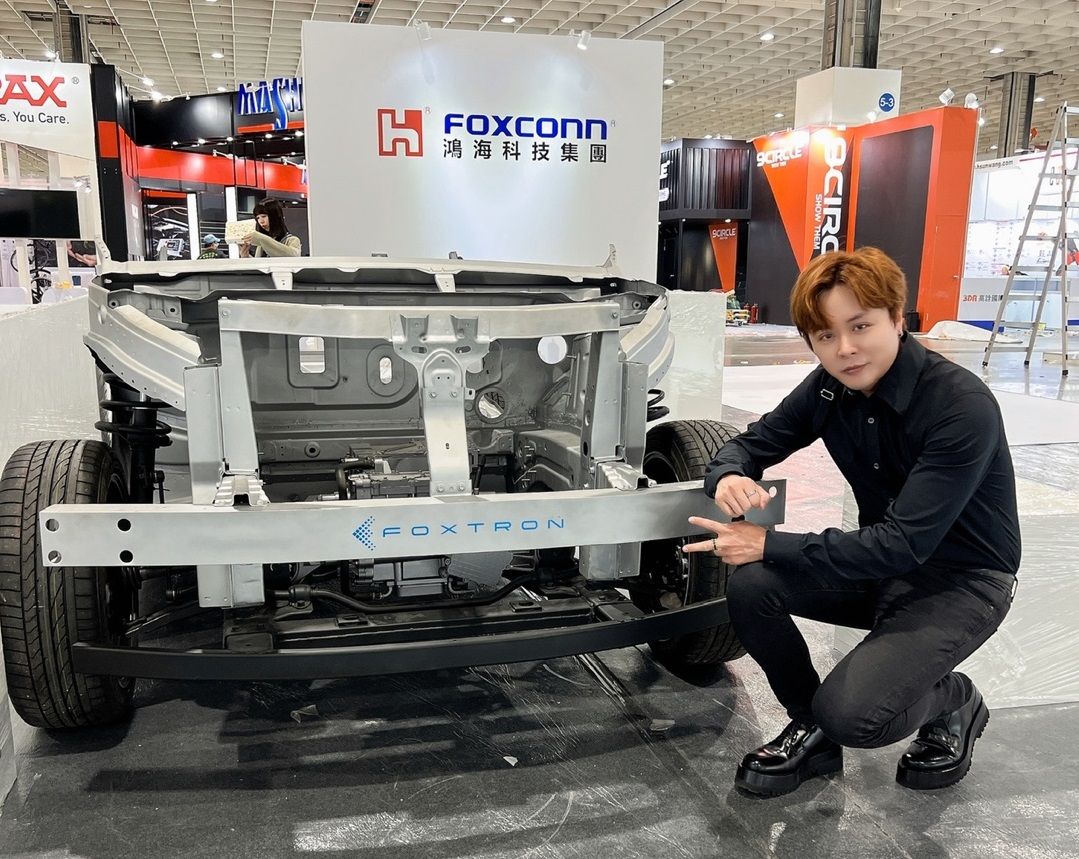Fueling Sustainability: An Interview with Micro Electric Vehicle Startup CEO

Founder & CEO of EMobily, Innovative VC Investor
3X Tech Founder & CEO, TEDx Speaker, G20 Canadian Delegate

Q1. Can you introduce yourself? What does your company do?
Answer: My name is Will Fan, and I am a serial entrepreneur that is based in Canada. I’ve been invited to speak at a TED talk, nominated to attend a Forbes conference in Detroit, was accepted at Microsoft for Startups for Founders, and received many awards such as one at this year's 2035 Emobility Taiwan Global Demo Day. My company won this award for all of Canada, and we have and garnered interest from Venture Capitalists such as Foxconn (Apple's chipmaker), NXP Semiconductors, and many other investors. We now have an exclusive relationship with Acer regarding their electric vehicle division in North America. Even though Acer is one of the best-selling computer vendors in the world, they are now looking to diversify into the electric vehicle segment.
Q2. What are some milestones you have achieved so far?
Answer: We have deployed our electric scooters here in Vancouver, Canada, as well as other major cities, and you can see them on the road today. Micro mobility, such as electric scooters, smaller delivery vehicles, and other forms of urban mobility, have been a huge part of our success; this segment is just growing so rapidly.
Q3. As a smart city visionary and futurist: If you had it your way, how do you see our future 10 years from now? 20 years from now? What are some “desired outcomes” you would like to see in the near future?
Answer: In the next ten years, some of the desired outcomes I would like to see are: smart cities that are more autonomous, such as ones with self-driving cars and seeing sustainable transportation, like micro-mobility, become a reality.
Based on the Paris Agreement, in the next 20 years, we are expected to achieve net zero emissions. To fulfill this agreement, we must get every person and company to participate or else individuals and organizations will incur penalties. The overall goal of this agreement is to reduce CO2 and GHG (Greenhouse Gases).
Therefore, I want to see more efficient cities; I feel that people spend too much time traveling. Instead, we should allocate our time to more productive and scalable tasks to contribute back to society.
Q4. Is sustainability an important part of smart cities?
Answer : Sustainability is the key to smart cities; for every amount of energy we use, we should in turn produce that same amount of energy through renewable energy solutions.
Q5. What are some of the drivers or obstacles that stand in the way of the future you foresee?
Answer : Some obstacles and challenges I foresee come in the form of policymakers and gatekeepers. Greenwashing, or the usage of marketing tactics to make a product or service look more sustainable, attracts people and investors but contradicts the Net Zero goal. The misallocation of funds to products that engage in greenwashing is detrimental to the growth of products that are genuinely innovative and sustainable.
Q6. As a technology entrepreneur and CEO of an Electric Vehicle (EV) company, what are some of the best current EV solutions? What can we expect to see over the next 2-3 years?
Answer : We will see more safety features in autonomous electric vehicles. Many EV companies have been innovating LiDAR sensors and other types of camera technology to map cities and provide a more user-friendly experience for their own products.
Charging infrastructure, battery storage, e-waste recycling, and thermal energy have been big topics in my industry.

Q7. In what ways has your experience as a Tedx speaker influenced you as an individual and entrepreneur?
Answer : Being a TEDx speaker is different compared to being a CEO. As a business owner, I may not have the same influence as a TEDx speaker, for example.
Being a TEDx speaker promotes wellbeing, knowledge, education, and more. It allows me to expand into another area of passion, rather than just being business focused. Through my TED talk, I now have a voice in many different communities - from the TEDx community to my local community. I can express my thoughts and feelings through a platform as I have gained a lot of credibility, not just as a business owner, but also as a person - a person of integrity and one who is devoted to sustainability. That's what the ability to speak on such a big platform can do for a person, and I'm really excited. This TED talk served as the gateway for me to be featured on other public panels and fireside chats. Now, I have more confidence in public speaking. Young CEOs don't typically engage in this manner, but I want to encourage and inspire other people to do the same thing. I hope I can set a good example.
Q8. As an entrepreneur, who inspires you, and who are your role models?
Answer : When I was younger, I didn't have many entrepreneurial role models to look up to. However, I had some decent mentors along the way that were involved in niche industries. Since they imparted their experiences to me, I am able to approach problems from an interdisciplinary perspective. A lot of people ask me questions like, "How do you take a company public?" or "How do you run a company?" That's where my mentors come in; people would not have asked me these questions in the first place without the help of my mentors, so they inspire me!
I also look up to billionaires like Warren Buffett, Jack Ma, and Elon Musk, so I used to follow them a lot, and their stories really inspire me. Currently, I think Elon Musk is our biggest role model because without him, our industry would not have thrived as well. Even five years ago, when I first got into lithium ion batteries, I also got a sneak peak into the electric vehicle industry, but it was not as popular back then as it is now. Over the past few years, our industry has become a global trend and an industry leader in many of the top asset classes. Furthermore, there is a lot of capital and funding for these types of initiatives. Companies in this industry even receive government support if they are working in the green energy and sustainable transportation sectors.
Q9. Does the Korean startup ecosystem interest you? And if you are interested, then why?
Answer : Yeah, I'd definitely like to collaborate with more Korean startups; the startup ecosystem in Korea has a lot of smart entrepreneurs. I also work with many Korean engineer designers, who work in fields ranging from electronics to aviation. By doing so, I realized that there are many smart entrepreneurs out there with impressive backgrounds. For example, I met many founders who worked for companies like Samsung and LG. In fact, many members of my Korean team actually used to work for these companies, and they decided to transition to the startup world. Doing so is no easy task because some of these people have families, so I'm really impressed that they decided to take a leap of faith and become founders. I also learned a lot about the Korean work culture during my time here. I feel like the career path for Koreans is quite linear: graduate from university, get a job, have a family. However, this path has been blocked by the current economic situation that has been plaguing the world. Therefore, becoming a founder during this time is even more impressive due to the fact that one has to ignore financial risks and go against the status quo. I really applaud people who do this, and I want to inspire more people to have faith in what they believe in - even if the road ahead seems unclear.
Q10. Before we wrap up, tell us about your main vision for your startup at the moment.
Answer : Before we wrap up, do you have anything more you want to share?
I just want to say thank you for having me! I hope my company journey and discussion about Korean startups, CEOs and aspiring entrepreneurs has left you with insights. I want to serve as a beacon of light for people to look and shoot for the stars!
Today’s Interview Insights
- Collaboratively, we should improve our ability to differentiate between authentic sustainability efforts and false claims of "greenwashing." This will enable capital to be directed towards companies that genuinely offer sustainable products and services.
- Entrepreneurs have the potential to make a greater and more constructive influence on their community, industry, and region by engaging in extracurricular activities beyond their business, such as giving talks at TEDx events.
- Despite the common perception that Koreans prioritize stability, Will Fan, an international investor and entrepreneur, recognized Koreans as highly skilled and competitive individuals. We have always been and continue to be a people who thrive on challenge.
